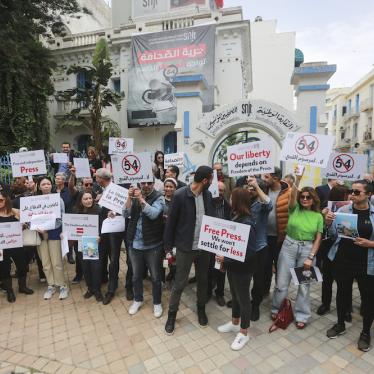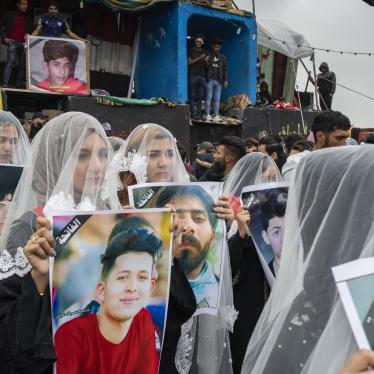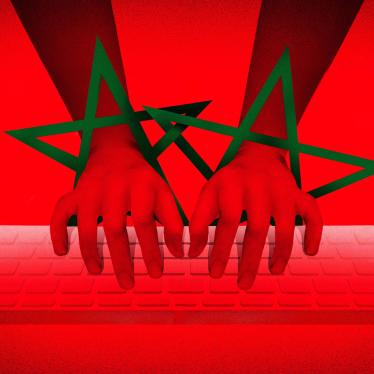Despite initial hopes the new government of President Bashar al-Asad would shift course, Syria continues to impose sharp restrictions on the right to freedom of expression, Human Rights Watch said today.
Human Rights Watch also called for the immediate and unconditional release of ten pro democracy activists, including parliamentarians Mamoun al-Homsi and Riad al-Seif, who are currently being tried in a Damascus criminal court. Homsi's trial was adjourned last week until February 13, and Seif's was postponed until February 14.
In a letter sent last week to President Asad Human Rights Watch condemned a new press law passed in September 2001 and urged the president to remove or amend provisions not in compliance with the internationally recognized right to freedom of expression.
"Syria had begun to move in the direction of opening up political space and permitting serious debate about the country's future," said Hanny Megally, executive director of the Middle East and North Africa division of Human Rights Watch. "Now we are seeing democratic activists on trial or in detention, and intimidating legislation that gives authorities the tools to shut down newspapers and prosecute and imprison journalists and writers."
The government's decision to replace the 1949 General Law on Printed Matter represented an opportunity to bring domestic legislation in line with the free expression standards embodied in the International Covenant on Civil and Political Rights, to which Syria is a state party. But the press decree, which regulates newspapers and other publications, is "a real disappointment," Megally said.
The decree enables privately owned newspapers, magazines, and other periodicals to seek licenses to publish, but also permits the prime minister arbitrarily to deny licenses for reasons "related to the public interest."
Other troubling provisions of the decree include:
- The prohibition of articles and reports about "national security," "national unity," and "details of secret trials."
- Harsh criminal penalties for publishing "falsehoods" and "fabricated reports."
- The temporary suspension of any publication or, under certain conditions, the cancellation of its license to publish, for publishing on banned topics.
- A ban on the publication of "political" articles in periodicals that are not licensed as political publications.
- A ban on "propaganda publications" financed "directly or indirectly" with foreign funding, with prison terms of up to one year.
- The revocation of the licenses of publications that "call for changing the state constitution through unconstitutional means."
- The criminal prosecution and imprisonment of up to one year for libel, slander, and defamation.
- A ban on the circulation in Syria of foreign periodicals that "infringe upon national sovereignty and security or offend public morality."
- Unreasonable restrictions on the ownership of newspapers and other periodicals, and the requirement that changes of ownership and key staff, such as director and chief editor, must be approved by the Ministry of Information.
- The requirement that journalists must be members of the Journalists Union in order to practice their profession.
- The requirement that journalists under certain conditions must reveal sources to the Minister of Information.
Human Rights Watch said that the press decree is not the only impediment to the full enjoyment of the right to freedom of expression in Syria. The continuing state of emergency, in force since 1963, and restrictive provisions in the penal code and other legislation (among them Legislative Decree No. 6 of 1965, and "crimes against the security of the state and public order" found in articles 260 to 339 of the penal code) contribute to the atmosphere of intimidation that is at odds with respect for and protection of media freedom and freedom of expression.
Human Rights Watch's analysis of Syria's press decree can be found here.







